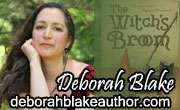It's always a somber note in the otherwise joyful May Festivities.
The May song “Unite and Unite”, originally from Cornwall, accompanies a processional dance that usually includes the Hobby Horse. Its verses recall the regular Maytide doings in the town of Padstow, where the song is from: gathering flowers, weaving garlands, singing, dancing.
One verse remembers the soldiers: local boys who should be here, and part of the fun, but instead are off in foreign parts, fighting someone else's war.
O where are the young men that now here should dance?
(For Summer is a-come unto day)
O some, they are in England, and some they are in France
(in the merry morn-ing of May).
At one point, the procession pauses, and the Hobby Horse—around here it's usually the Green Man—dies. Then—this being May and the point thereof, after all—he springs back to life, and the procession continues.
These decades past, here in Paganistan—this is, after all, a living tradition, not a museum piece—we've updated the verse to match the current war(s).
O where are the young men that now here should dance?
(For Summer is a-come unto day)
O some are in Afghanistan, and some are in Iraq
(in the merry morn-ing of May).
I regret to say that our youngest coven kid knows only these lyrics. Always, another war.
This year, alas, yet more new words. How long, O Lady, how long?


















